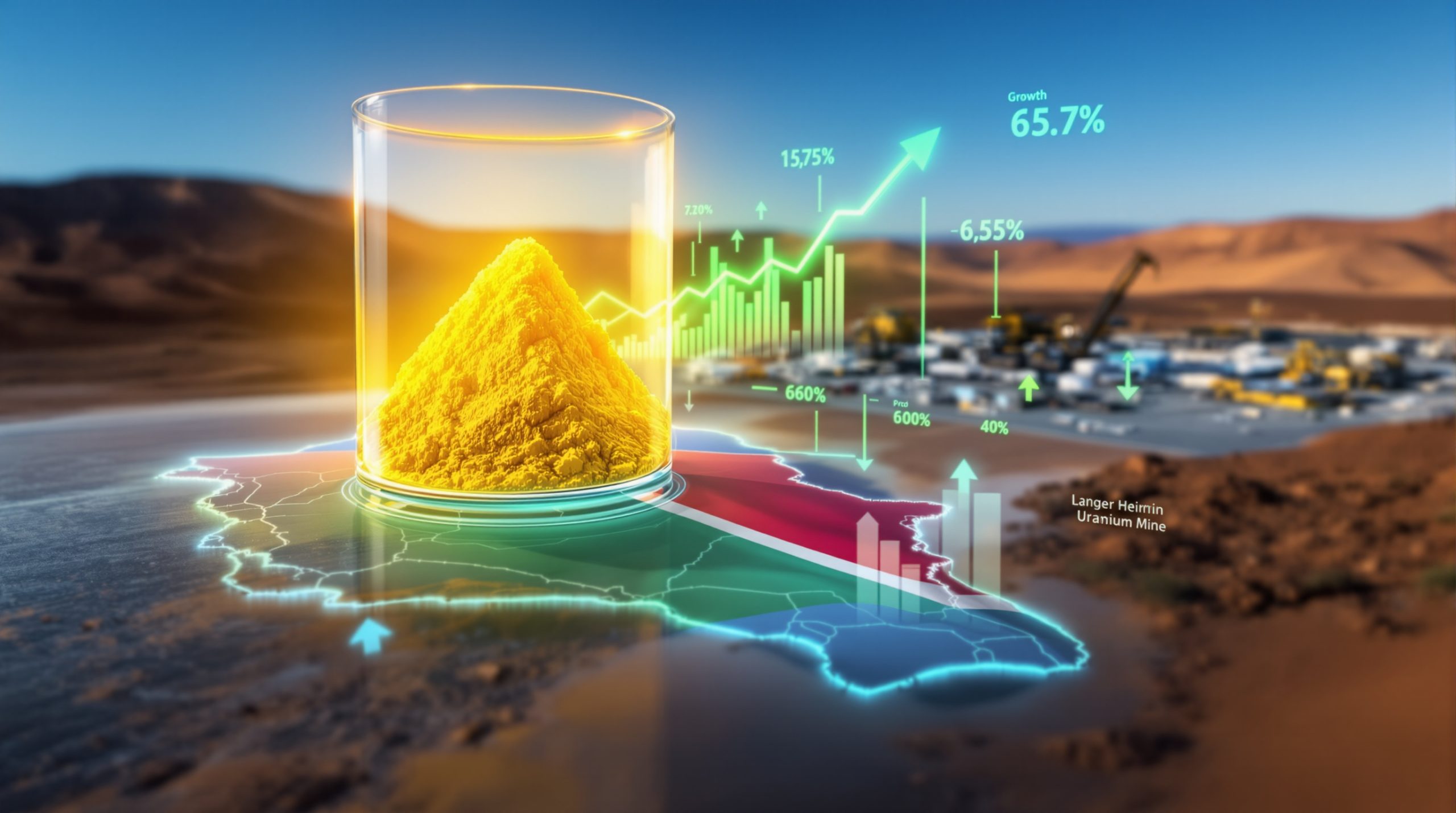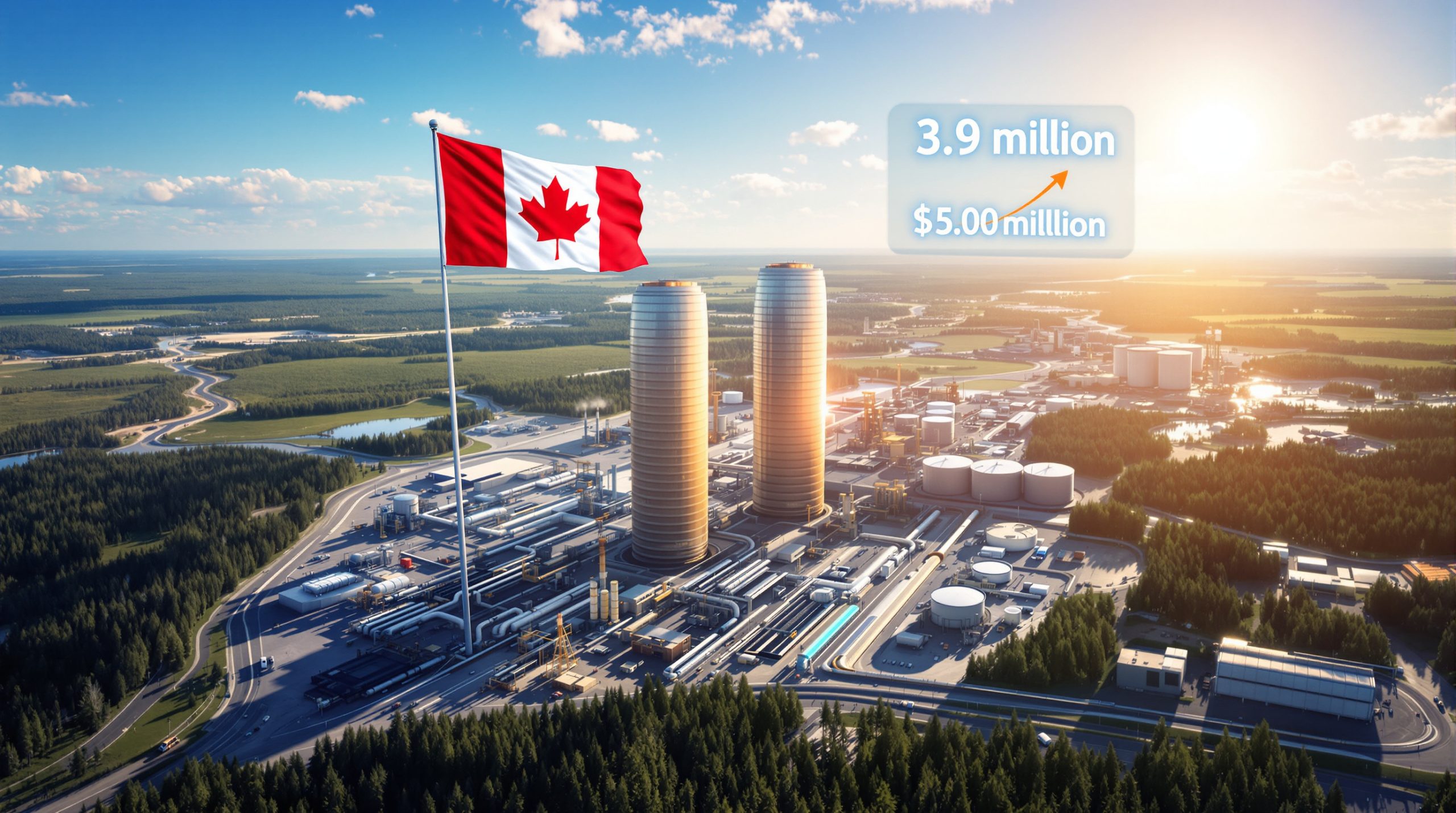What is Metallium's Texas Facility Expansion Project?
Metallium Ltd (ASX: MTM) is scaling up operations at its Gator Point Technology Campus in Texas with a significant expansion that will increase e-waste processing capacity fivefold to 8,000 tonnes per annum. This strategic move positions the company as an emerging leader in critical minerals recovery within the United States, addressing the growing demand for domestic rare earth element (REE) production.
The expanded facility will produce approximately 1,600 tonnes of valuable minerals annually, substantially exceeding earlier projections of just 350 tonnes. This dramatic increase in output capability demonstrates the scalability of Metallium's technology and its potential to become a significant player in the critical minerals energy security supply chain.
This expansion represents more than just increased capacity—it's a strategic positioning move that aligns with broader national security objectives to reduce dependence on foreign suppliers for materials essential to advanced technology manufacturing, defense applications, and renewable energy systems.
The timing of this expansion is particularly significant as global competition for critical minerals intensifies. By establishing a substantial processing footprint in the United States, Metallium is creating a cornerstone for domestic supply chain resilience in sectors ranging from electronics to renewable energy.
How Does Metallium's Flash Joule Heating Technology Work?
The Revolutionary Processing Method
At the core of Metallium's expansion is its proprietary Flash Joule Heating (FJH) technology, which represents a fundamental shift in critical minerals extraction methodology. Unlike conventional extraction techniques that rely on energy-intensive smelting or chemical processes with significant environmental impacts, flash joule heating tech employs precisely controlled electric pulses to separate valuable materials from electronic waste.
The process works by applying brief, high-intensity electrical discharges to e-waste materials, creating localized heating that efficiently separates valuable minerals without the need for extensive chemical processing. This approach allows for selective recovery of critical elements while minimizing energy consumption and waste generation.
Key Technological Advantages
-
Superior Efficiency: Reduces processing times by up to 50% compared to conventional extraction methods, allowing for higher throughput with less equipment
-
Environmental Stewardship: Decreases waste generation by approximately 90% compared to traditional smelting operations, significantly reducing disposal requirements
-
Exceptional Versatility: Capable of processing various feedstock materials, including diverse types of electronic waste and potentially mining tailings
-
Reduced Energy Requirements: Consumes substantially less energy per tonne processed than conventional pyrometallurgical operations
-
Modular Scalability: Features a design that allows for seamless capacity expansion through parallel processing lines
The innovation behind FJH technology extends beyond just speed and efficiency—it represents a fundamentally different approach to materials recovery that could transform how the industry approaches critical minerals extraction from secondary sources.
What is the Timeline for Metallium's Texas Facility Development?
Stage 1: Near-Term Production Goals
Metallium has established a structured timeline for bringing its expanded Texas facility online:
-
Engineering and Design Phase: Currently finalizing detailed plant integration plans and structural designs to support the increased processing capacity
-
Regulatory Approvals: Advancing necessary permits for air quality management, water usage, and waste handling protocols with Texas environmental authorities
-
Commercial Operations Target: Aiming for initial Stage 1 operations to commence by Q3 2026
-
Initial Production Focus: Dedicating approximately 350 tonnes per annum of processing capacity specifically to high-value rare earth elements, with particular emphasis on gallium and germanium
This accelerated timeline demonstrates Metallium's commitment to bringing domestic critical minerals production capacity online rapidly to address market shortages and supply chain vulnerabilities.
Stage 2: Expansion Roadmap
Following successful implementation and optimization of Stage 1 operations, Metallium plans to execute its Stage 2 expansion:
-
Processing Capacity Growth: Double capacity from 8,000 tpa to 16,000 tpa through installation of additional FJH processing units
-
Product Portfolio Diversification: Introduce recovery streams for additional critical mineral elements beyond the initial focus elements
-
Automation Enhancement: Implement advanced process control systems to optimize recovery rates and processing efficiency
-
Recovery Rate Optimization: Fine-tune extraction parameters based on operational data to maximize yield from various feedstock types
This phased development approach allows Metallium to validate its technology at commercial scale before committing additional capital to expansion, reducing technical and financial risk while establishing operational expertise.
Why is the Location in Texas Strategically Important?
Geographic Advantages
The selection of Gator Point Technology Campus in Chambers County, Texas provides Metallium with several strategic advantages:
-
Feedstock Proximity: Located within efficient transportation distance of major e-waste generation centers in the southern United States
-
Logistics Infrastructure: Benefits from well-developed road, rail, and port access for receiving raw materials and shipping finished products
-
Energy Resources: Coordination with Entergy Texas ensures reliable and competitively priced power supply essential for the FJH process
-
Technical Workforce: Access to a skilled industrial labor pool from nearby manufacturing centers and technical education institutions
-
Business-Friendly Environment: Benefits from Texas' supportive policies for industrial development and mining industry innovation
The Texas location also positions Metallium within the growing U.S. technology manufacturing corridor, where demand for domestically-sourced critical minerals continues to increase as companies seek to reduce supply chain vulnerabilities.
Expansion Options Beyond Texas
Metallium's growth strategy extends beyond the Texas facility with secured options for additional processing sites:
-
Westport Facility: Located within Mid City Scrap Metals' existing campus, providing immediate access to pre-sorted electronic waste feedstock
-
Harrisonburg Site: Strategically positioned near major high-waste data centers, offering access to specialized e-waste streams with high concentrations of valuable materials
These additional locations could increase Metallium's total processing capacity to approximately 20,000 tpa by 2028, creating a network of strategic recovery facilities across key regions of the United States to minimize transportation costs and optimize supply chain efficiency.
How Does Metallium's Expansion Address Global Supply Chain Challenges?
Reducing Dependence on Foreign Sources
The timing of Metallium's facility expansion is particularly significant given current global supply chain dynamics:
| Global Challenge | Metallium's Solution |
|---|---|
| Chinese dominance in REE processing (85-90% of global capacity) | Establishing domestic U.S. processing capability using innovative technology |
| Supply chain vulnerability to geopolitical disruption | Creating localized recovery and refining capacity within the United States |
| Trade policy uncertainty and potential tariffs | Reducing reliance on imported critical minerals through domestic processing |
| Environmental concerns with conventional mining | Implementing sustainable mining transformation with reduced footprint |
Historical events like China's 2010 rare earth export restrictions to Japan demonstrated how quickly supply chains can be disrupted by geopolitical tensions, with some rare earth oxide prices increasing by up to 750% during that period. Metallium's domestic processing capacity provides a buffer against similar future disruptions.
Market Opportunity in a Changing Landscape
As global demand for critical minerals continues to grow at an expected 7-10% annually through 2030, Metallium's expansion addresses several key market factors:
-
Expanding E-Waste Stream: Electronic waste represents an increasingly valuable "urban mine" with the U.S. alone generating approximately 6.9 million tonnes annually
-
Technology Replacement Cycles: Rapid innovation and obsolescence in consumer and industrial electronics create a continuous and growing feedstock supply
-
Energy Transition Requirements: Clean energy technologies including solar panels, wind turbines, and energy storage systems require substantial critical mineral inputs
-
Regulatory Environment Evolution: Increasing requirements for responsible sourcing and recycling of electronic materials create supply-side pressure
The combined effect of these factors creates an estimated addressable market opportunity of AUD 500-800 million within the e-waste segment alone, providing substantial growth potential for Metallium's processing technology.
What Strategic Partnerships Support Metallium's Growth?
Industry Collaborations
Metallium has developed several strategic partnerships to strengthen its position in the critical minerals value chain:
-
Ucore Rare Metals Integration: Collaborating to combine Metallium's FJH process with Ucore's RapidSX separation technology, creating a more efficient end-to-end processing solution
-
Feedstock Supply Agreements: Establishing relationships with e-waste collection and pre-processing companies to ensure reliable material supply
-
Engineering Expertise: Engaging specialized engineering firms with experience in materials processing for plant design and implementation
-
Environmental Monitoring Systems: Implementing best-practice environmental management through partnership with VaporPoint for emissions monitoring and control
These partnerships create a supportive ecosystem that extends beyond Metallium's core technology, addressing the full value chain from waste collection through to purified material production.
Feedstock Security
Securing reliable feedstock supply is critical to Metallium's success, and the company has taken concrete steps in this direction:
-
Initial Processing Stock: Secured 60 tonnes of printed circuit board scrap for initial processing trials and optimization
-
Framework Agreements: Established the basis for ongoing feedstock supply relationships with major e-waste collectors
-
Supply Diversification: Targeting multiple waste streams and suppliers to reduce concentration risk and ensure consistent feedstock availability
These arrangements provide Metallium with the material security needed to support initial operations while establishing the relationships necessary for long-term supply.
How Does the Market Environment Impact Metallium's Prospects?
Commodity Price Dynamics
Metallium's strategic focus on high-value rare earth elements comes at a favorable time in market price cycles:
-
Gallium and Germanium Markets: Prices for these critical minerals have remained elevated since China implemented export controls in July 2023
-
Supply Constraints: Ongoing export restrictions from China have created pricing premiums for materials processed outside Chinese jurisdiction
-
Semiconductor Demand Growth: Increasing consumption for advanced electronics applications continues to support price stability for key elements
While commodity markets invariably experience cyclical patterns, structural factors including growing demand and limited new supply sources provide support for longer-term price stability in these specialized materials.
Geopolitical Considerations
The broader geopolitical context creates both challenges and opportunities for Metallium:
-
Trade Policy Evolution: The current U.S. administration's focus on domestic manufacturing creates potential tailwinds for U.S.-based critical mineral production
-
Critical Minerals Strategy Implementation: Government initiatives to secure domestic supply chains could provide both market support and potential funding opportunities
-
Investment Incentives: Federal and state programs supporting technologies that reduce foreign mineral dependence may benefit Metallium's expansion plans
These factors generally create favorable conditions for Metallium's U.S.-based growth strategy, though political and policy changes will require ongoing monitoring and adaptation.
What Environmental Benefits Does Metallium's Technology Offer?
Sustainability Advantages
Metallium's Flash Joule Heating technology delivers significant environmental improvements compared to conventional extraction methods:
-
Minimized Chemical Usage: Requires substantially less acid and harmful reagents than traditional hydrometallurgical processes
-
Reduced Carbon Footprint: Consumes less energy per tonne of material processed than conventional smelting operations
-
Waste Stream Reduction: Minimizes secondary waste generation through more efficient separation of target materials
-
Water Conservation: Operates with substantially lower water requirements than traditional chemical leaching processes
-
Land Impact Elimination: Creates no mining footprint when processing urban waste streams, avoiding habitat disruption and land disturbance
These environmental advantages align with increasing regulatory requirements and corporate sustainability commitments, potentially creating premium market opportunities for responsibly recovered materials.
Regulatory Compliance
The company is implementing comprehensive environmental management systems to ensure sustainable operations:
-
Continuous Emissions Monitoring: Installing real-time air quality tracking systems to verify compliance with permit requirements
-
Water Management Protocols: Developing closed-loop systems to minimize discharge and maximize water recycling
-
Residual Material Handling: Establishing protocols for responsible management of post-processing residual materials
These environmental compliance measures not only support regulatory requirements but also align with growing investor and customer demands for transparent and sustainable resource recovery practices.
What Are the Investment Implications of Metallium's Expansion?
Near-Term Considerations
While Metallium's technology shows significant promise, prospective investors should consider several factors:
-
Commercialization Timeline: Full-scale operations remain targeted for 2026, indicating a period of continued development before significant revenue generation
-
Technology Validation Requirements: The process must prove effective at commercial scale, with demonstrated recovery rates and product quality
-
Funding Requirements: Continued capital investment will be needed to support expansion and optimization of the technology
-
Customer Development: Relationships with end-users of recovered materials must be established, along with product specifications and quality assurance protocols
These factors suggest that near-term investment should be approached with appropriate consideration of development-stage risks and timelines.
Long-Term Potential
For investors with appropriate risk tolerance and time horizons, Metallium's strategic minerals reserve expansion offers compelling long-term prospects:
-
Early-Mover Advantage: Establishing an early position in domestic REE processing from secondary sources
-
Technology Scalability: Potential for significant capacity growth through modular expansion of proven technology
-
Margin Potential: High-value product mix combined with proprietary technology offers potential for strong gross margins
-
Strategic Significance: Growing importance within critical mineral supply chains could create premium valuation opportunities
The company's focus on high-margin rare earth elements provides potential for strong returns on invested capital once commercial operations are established and optimized.
FAQ: Metallium's Texas Facility Expansion
What makes Metallium's technology different from traditional recycling?
Metallium's Flash Joule Heating technology uses precisely controlled electric pulses rather than chemical leaching or high-temperature smelting. This approach significantly reduces environmental impact while improving recovery rates of valuable materials, particularly for challenging elements like rare earths that are difficult to extract using conventional methods.
When will the Texas facility be fully operational?
Stage 1 operations are targeted for Q3 2026, with initial production focusing on high-value rare earth elements including gallium and germanium. Full capacity utilization will likely be achieved in phases as the technology is optimized for commercial-scale production.
What types of materials will Metallium process?
The facility will primarily process electronic waste (e-waste) including printed circuit boards, electronic components, and potentially specialized streams from data center decommissioning. The technology may also be applicable to processing mining tailings and other secondary materials containing valuable minerals.
How does this expansion address supply chain concerns?
By establishing domestic processing capability for critical minerals within the United States, Metallium reduces dependence on foreign sources, particularly China, which currently dominates global rare earth processing with 85-90% of capacity. This creates supply chain resilience for materials essential to advanced manufacturing, defense applications, and clean energy technologies.
What is the total processing capacity after expansion?
The initial expansion increases capacity to 8,000 tonnes per annum of e-waste feedstock, with infrastructure designed to support future growth to 16,000 tpa in Stage 2. With additional sites, Metallium could reach approximately 20,000 tpa of processing capacity by 2028.
How does Metallium's approach impact the environment?
The Flash Joule Heating process reduces waste by approximately 90% compared to traditional smelting methods, uses significantly less energy, and minimizes chemical usage typically associated with hydrometallurgical processes. The technology also enables urban mining of waste materials rather than new resource extraction, reducing overall environmental footprint.
Want to Spot the Next Major Mineral Discovery?
Discover significant ASX mineral discoveries the moment they're announced with Discovery Alert's proprietary Discovery IQ model, turning complex mineral data into actionable investment opportunities. Understand why major mineral discoveries can lead to significant market returns by exploring Discovery Alert's dedicated discoveries page and begin your 30-day free trial today.




